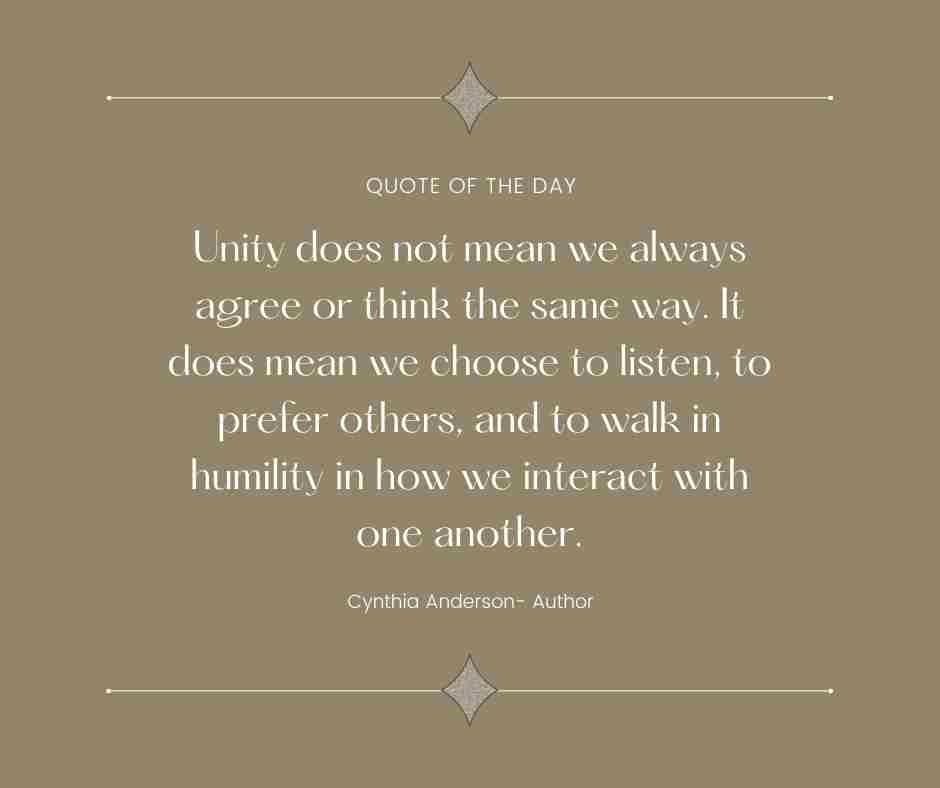Have you ever been in a place where you have felt like the odd one out – everyone else has someone to relate to but you? All the successful mothers’ are sitting around chatting and having a nice warm cup of tea, and you are chasing after a toddler who won’t stay still, even though you haven’t had a decent adult conversation in days? It is easy to feel isolated and lonely on the perimeter.
Often the hardest thing we face initially in going into a new land and location is loneliness. We are uprooted from all the people who we know, love, and feel comfortable with, and are re-planted in a strange place with a whole new set of people. After the initial excitement of the first weeks, months, or years, it can start to feel very lonely.
Made for Relationships
As creatures made in God’s image, we are made for relationships. Some of us are able to go a little further with just our own company for sustenance, but in the end, all of us need to be with others and have relationships with people of sufficient depth and intimacy.
We are not called only as individuals to follow Jesus but are also called as His Body, interconnected, interdependent, and working together. Our family has been blessed to always work with a team. We have never had to go solo for long periods of time, and this has been a great blessing from God. Although teamwork takes time and effort, and sometimes it may feel easier to just do it yourself, the time invested in relationships pays off.
Will They Understand Me?
When we first moved overseas (in a long-term sense), we were part of a team: our family plus two single guys and two single girls. Not a couple or child in sight. I was sad leaving good friends at home, mothers who understood things like – how I could get worked up by a two-year-old and feel totally at a loss of how to deal with endless unsuccessful attempts at potty training.
I looked around and thought, “I can make friends with these girls and understand their world, but how will they ever really understand me and share my heart burdens?” Loneliness loomed in on me, saying, “You’ll be helpless, friendless, and alone.”
Whatever situation you may be in, remember that just as God saw Adam’s loneliness and at the right time brought the right person to come alongside him, He also sees your loneliness and wants to provide for you. Not that He will bring a husband(if you are single), but He does want to surround you with warm and loving relationships, although they may not be what you were initially expecting, or what you have been used to.
God’s heart is for relationships: for us to be connected, and ministering into people’s lives and for others to be reaching into our lives. We were not made to live alone, out on our own little island, or unapproachable in our own territory behind our front door.
Right People – Right Time
God brings the right people at the right time. When we lived in Australia I had many very close friends who I loved and shared deeply with. When we left, it felt like an arm had been cut off, and strangely, I did not instantly bond deeply with other people around. However, God brought my husband and I closer than ever before. Previously I had talked to my friends on child-raising issues, now it was just him and me. I am amazed at the wisdom that has come through as we have worked together, and how our intimacy, mutual respect, and understanding flourished. God also brought a lovely local lady into my life. She was my first language tutor, and she came daily to our house to teach me. She was married with a seven-year-old son, and she became a firm friend even though many of her child-rearing principles were totally opposite to my own.
The single people in our team who I thought wouldn’t be able to understand me, were there with me, coming around, playing with my kids, being aunties and uncles. I found that relationships with the team and with locals formed by just spending time with them. Having people over for meals, going out together, having fun, working together, praying together, and making the effort to be together, all these things helped to solidify the relationships between us.
Letters From Home
Letters from my faithful sister also really helped. She wrote every week about her own family and experiences. It was such a blessing and encouragement to hear from another mother doing the ‘mother thing’ even though her circumstances were different. When we got onto email, things really took off. I could email friends at home and everywhere. These letters and emails were a relationship lifeline to me in the first year, a bit like those inflatable arm bands you put on your child’s arms when they are learning to swim. To start with, they need to be fully inflated, but little by little as the child learns to swim and is at ease in their new world, their need for the floats becomes less and less, until they become fun rather than a dire necessity.
Friendships do change as you adapt to your new place, and your friends at home get used to you not being around. However, if you can ask someone (or several people) to commit to writing to you faithfully, especially for the first year, it can be a great help. Also if you can get some of your children’s friends (via their mothers) to send pictures, magazines or emails, it helps them feel connected and not feel abandoned.
In the battle against loneliness, you need to engage with the new and embrace those that God brings to you as well as maintain your ties with the old.
Are We Normal?
When we first moved of course life was not the same as it had been before. It was not better or worse, just different. God, in His kindness, also provided meetings with other families and mothers just when I needed it. After we had been there a year we met up with another missionary family who had been in the country for many years and they shared their experiences openly with us. It was such a relief to hear that our experiences and difficulties were not weird, our children were not freaks, and we were not bad parents!
Being a foreigner in a society that is different from your own, especially if there is a language barrier can cause your inner-most fears to rise up. You want to feel safe and understood, so you want to stick with people like yourself who can speak the same language as you do. This often leads to little enclaves of different cultures – like the Chinatown in many Western cities, and the social hub expatriates usually form in other foreign cities. This is not wrong; it is a very natural response, but missionaries must avoid two pitfalls.
Two Pitfalls to Avoid in Overcoming Loneliness on the Mission Field
One is getting so involved with the expatriate community that you have no time or space left for the people you have come to reach out to. The other is that other expatriates may have a very different outlook on life and the country than you do.
Many of the expatriate wives I met on the mission field were only there because of their husband’s work. They didn’t really like living there, were very critical of the culture and habits of the people and seemed to always be looking forward to when they were going to leave. They seemed to live in a little bubble, moaning about loneliness even though they were surrounded by people. Just because the local people are different, doesn’t make them any less capable of warmth and friendship.
We have to be aware of this very subtle form of cultural pride. “I can only really relate to people of my own race and language group”. This type of atmosphere can be very poisonous especially when you are just starting out and missing home and feeling uncomfortable yourself. So if you meet this type of response don’t hang around!
If you do, most likely you will get infected by it, and start thinking in the same way that others do around you. Most of these women feel so isolated because they have never tried to learn enough of the local language to make friends so they are always on the outside wondering what is going on.
A Vicious Cycle
It is vital to learn enough of the local language to be able to make friends, to understand and empathize. The temptation, especially at the start, is to draw away and stay in the comfort zone of those who speak the same language as you. Unfortunately, in the end, this leads to isolation because it very hard to establish bonds in the local community.
This becomes a vicious cycle: you feel on the outside of the community – ostracised because of your inability to communicate, and then the insecurity from that makes it hard to make friends and want to learn the local language.
This also has an effect on the family because an isolated, lonely mummy makes the rest of her family feel uneasy. Mothers are also the bridge for young children into a community. They model how to relate to others outside the family group, so our children will take their cue about how to relate to their neighbors from us, their parents.
Two Vital Kinds of Relationships
It is vital to pursue relationships on two levels. Making a relationship with people in your original country will help with your own well-being, and your children will have some link with their roots/past. Simultaneously making friends on your local level will make the new place become “home”.
You need to welcome all the people God has placed around you, even if they are very different from the people you were friends with before. Communication is essential to starting and maintaining relationships so language learning cannot be neglected, even if some of them speak some of your mother tongue.
Without a decent command of the local language, it is very difficult, if not impossible to feel at home in your new culture. Language and culture are tightly interwoven, and to really understand people it is vital to understand the way they think – which comes out in the way they express themselves. Without the language, you may be able to live there just fine. You can buy food, be with your family, go out for walks etc, but you could just as easily be on any other part of the planet.
Overcoming Loneliness on the Mission Field Seemed Impossible at First
I grew up in a situation like this. I grew up among non-English speaking people, and although my parents could speak the local language, I could not. I only really associated with English-speaking people, and because of this I never really knew, understood, or formed deep relationships with all the other races around me. It is very possible to do this.
One can get to a point where we can live and even carry out a ministry to a certain degree, but never actually integrate into the local culture. I am not laying a guilt trip, or saying we need to spend 5 years in intensive language study, but it is vital to work to a point where you can reasonably communicate with those around you to make friends and relate closely.
When I first started learning the language it seemed impossible that I would ever be able to learn enough to really be able to make friends. I could understand enough to get around but to really communicate heart-to-heart seemed insurmountable.
After two years although I could get around well and felt comfortable, I still had not gotten to that point where the local people were as close to me as other English speakers just due to a lack of depth of vocabulary. It still seemed like a huge mountain. Then gradually, over the next couple of years, as a local friend who could not speak English started to help in our home, and open her heart to us, I suddenly realized, “Hey I am getting this! We really have forged a deep friendship, and we connect at a deep heart level.” This was such a breakthrough and started to spread out to other relationships as well.
There is always room for growth, both in relationships and language, but the necessary heart issue is one of willingness and desire to take hold of every potential friend that the Lord gives to us! There are answers to the problem of loneliness on the mission field!
The above is an excerpt from Rachel M.’s book “Pack Up Kids! Let’s Go!” Published with her permission.











